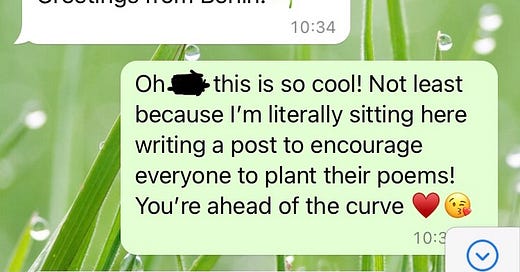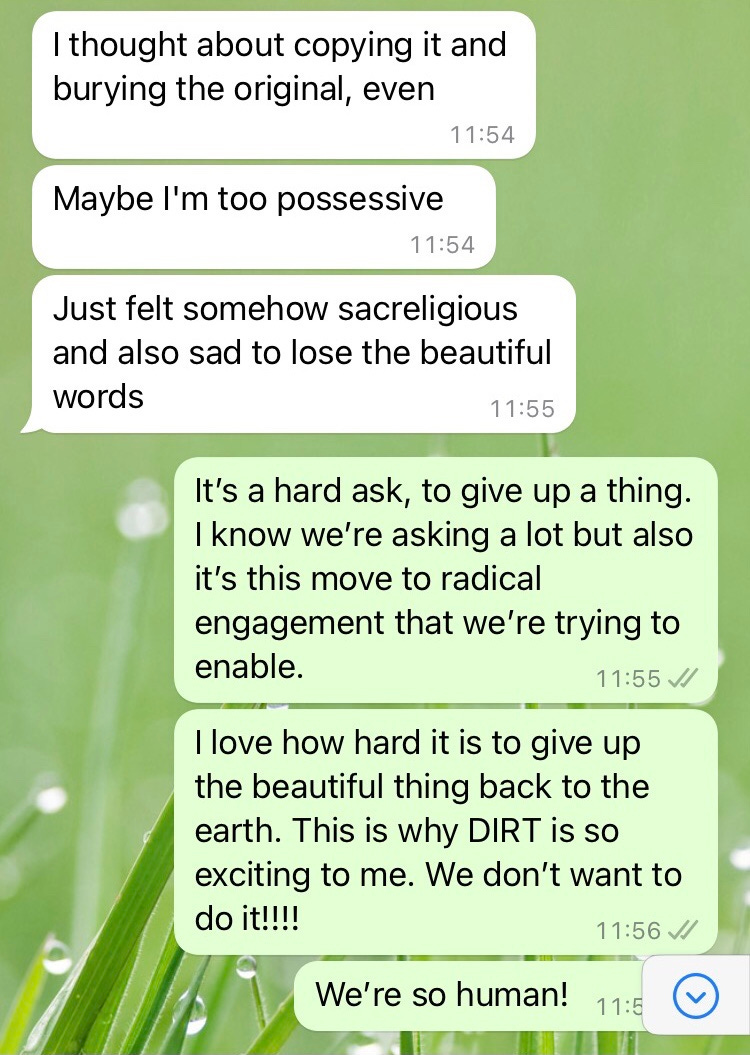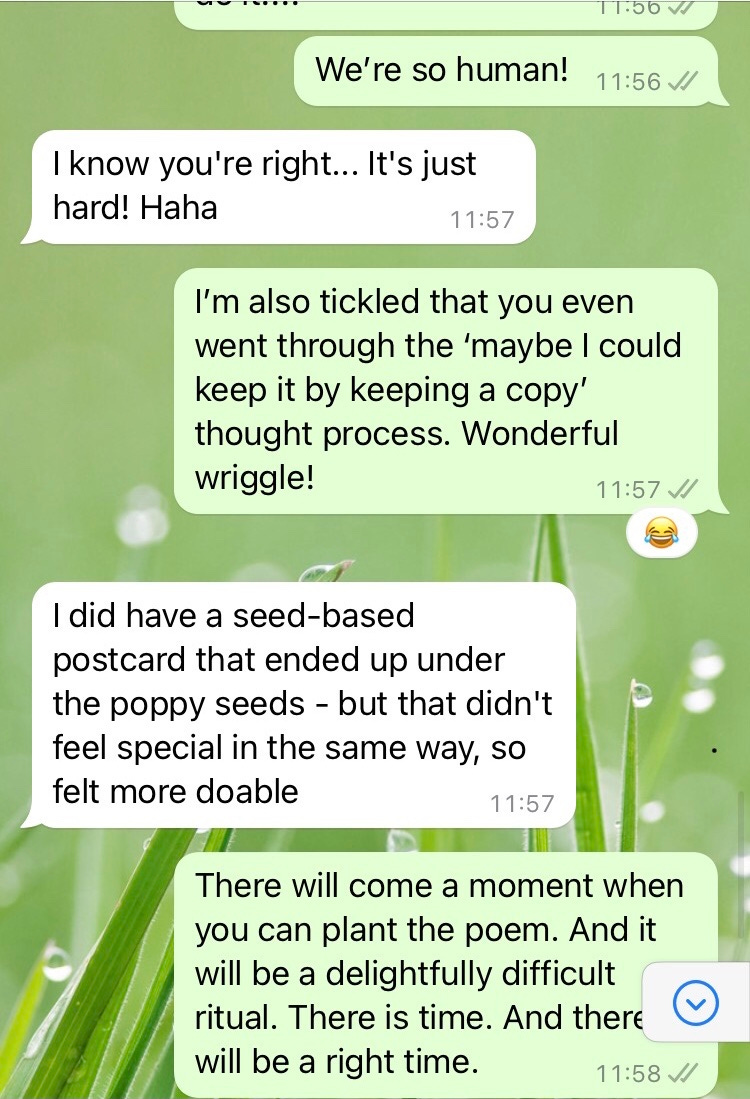So spring is here folks! It’s time to plant poems. Let’s make the first week of April the week you carry ‘Chapel’ cheerfully to a garden / wasteland / window box / wherever there is soil near you and say dear earthworms please accept my precious gift.
Or is it time? Maybe it feels tricky to let the poem go, to never read it again, maybe a tinge of the eeeuww can’t I keep it and just sow the seeds might creep in… I mean it’s only natural, right:
“Not a forever object” — that has to be the best description of the ideas at the heart of DIRT. Our radical, communal project asks: can we bear to touch the life/death cycle of creation and return these papers with their precious, poetic words to the soil where they will rot down and feed new life? Juliette and I believe we can, believe we must.
I make of myself a ritual,
a sacred currency of generosity
In asking you to plant ‘Chapel’, we’re inviting you to bring forward your own ‘sacred currency of generosity’. Individually you’ll be surrendering an object that has value and it might sting a little. Collectively we’ll be raising our voices. Imagine what new freedoms will become ours as we act FOR the Earth, as we carry out a little mischievous disruption to the ‘normal’ way of things.
the new root of me
dances off the heavy coat of winter
in renewal
in this lifepraise there is
a reckoning
with ourselves
Friends, we give you planting instructions in the form of a poem (would you honestly expect anything less!):
The Art of Planting Poems Do you have a spade? Good Can you clear a patch of ground? Grand. Can you turn the earth there to make space for a broad sheet of paper? Will you lay the pretty paper out flat? And dig soil back over the top? Water the freshly turned earth? Scatter seeds and pat them onto the soil? Will you water the patch for two weeks? You, my friend, are the maximalist planter of poems. Can you find a wee gap between two plants? Good. Can you find a stick? Grand. Try poking that stick between the plants and wiggling it about. You're making a hole! Now roll up the poem into a tube. Push that rolled up poem into the hole. Scrape some soil back over the whole. Scatter those seeds willy-nilly in the area of the poem. Leave nature to do its watering. Maybe pop back sometime to see if anything sprouts. You, my friend, are the minimalist planter of poems. Do you have no tools? Good. And no patch of land you call your own? Well seek out the common land, steal up to a vacant window box, pull over on the verge. Wait for rain. Bring a spoon or fork in your pocket. Scoop out a hole like a teacup in the damp soil. Scrunch up that poem. Into the hole! Cover it with soil like you were never there. Scritchy-scratchy seed-to-soil with a spoon. Walk away. Walk by casually in six weeks. Catch a patch alight with flowers. You are the wild planter of poems. Friend, how you treasure the Earth Could you read that poem out loud to the soil? Could you bless your planting with privacy, a ritual generosity of love? Could you bring me back just seven words dear earthworms please accept my precious gift
We’d love you to write back with a reflection on planting ‘Chapel’, which will become both a communal poem and our collective testament to action. Please write down the seven words that come to mind about the experience and post your 7 WORDS in the comments.
THANK YOU all again for taking part and for supporting DIRT so enthusiastically.
p.s. We think copies of ‘Chapel’ might make rather fine Easter gifts — a thank you for having me gift, a wish we could have been together gift, a hope and happiness gift!










Planted yesterday, 30th April. At first I misunderstood and came up with 7 individual words from the earth: silver centipede peg fan worm tarantula stealth. Then read your blog again and so here is the 7-word sentence: I swear true allegiance to the loam.